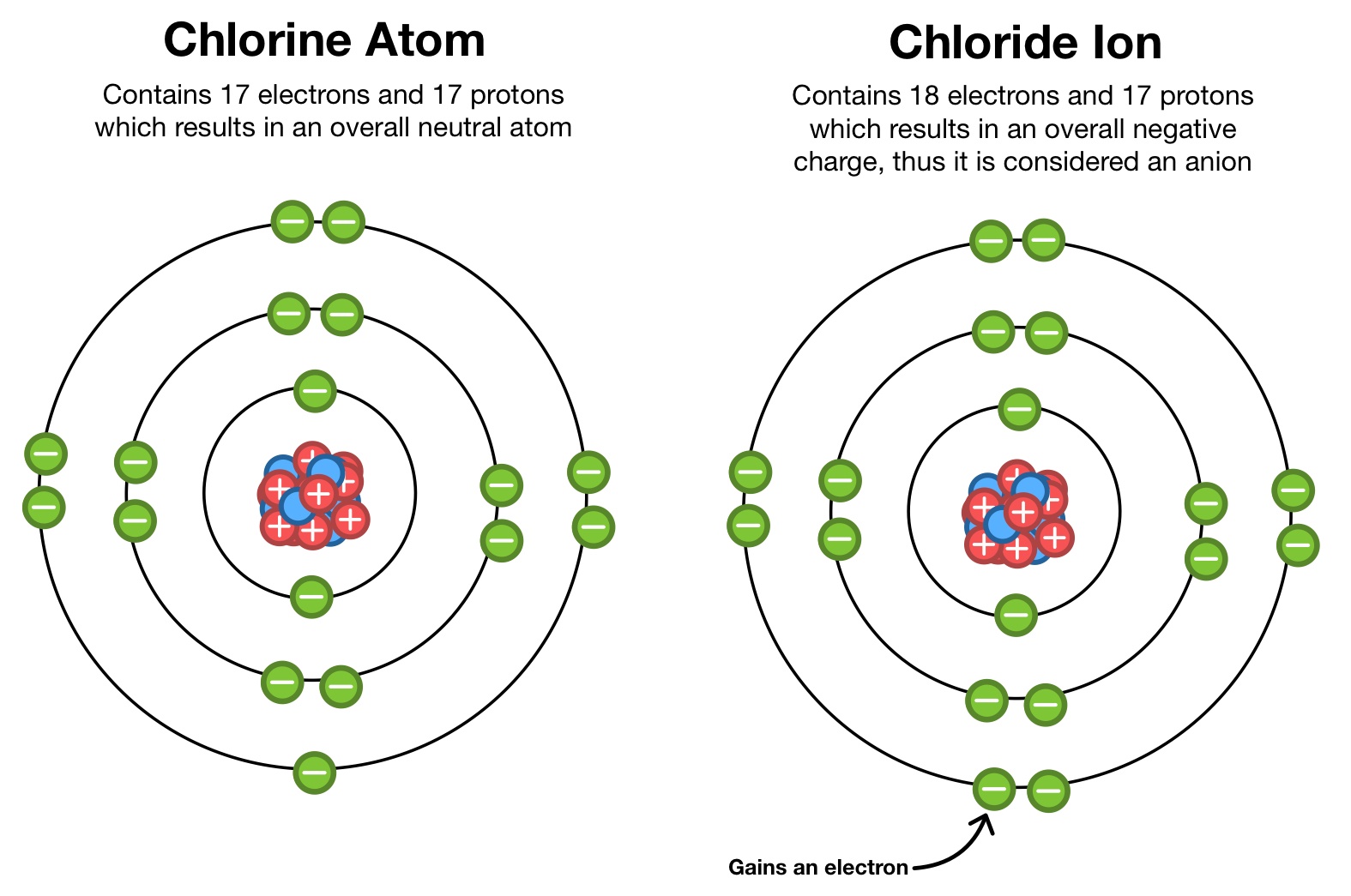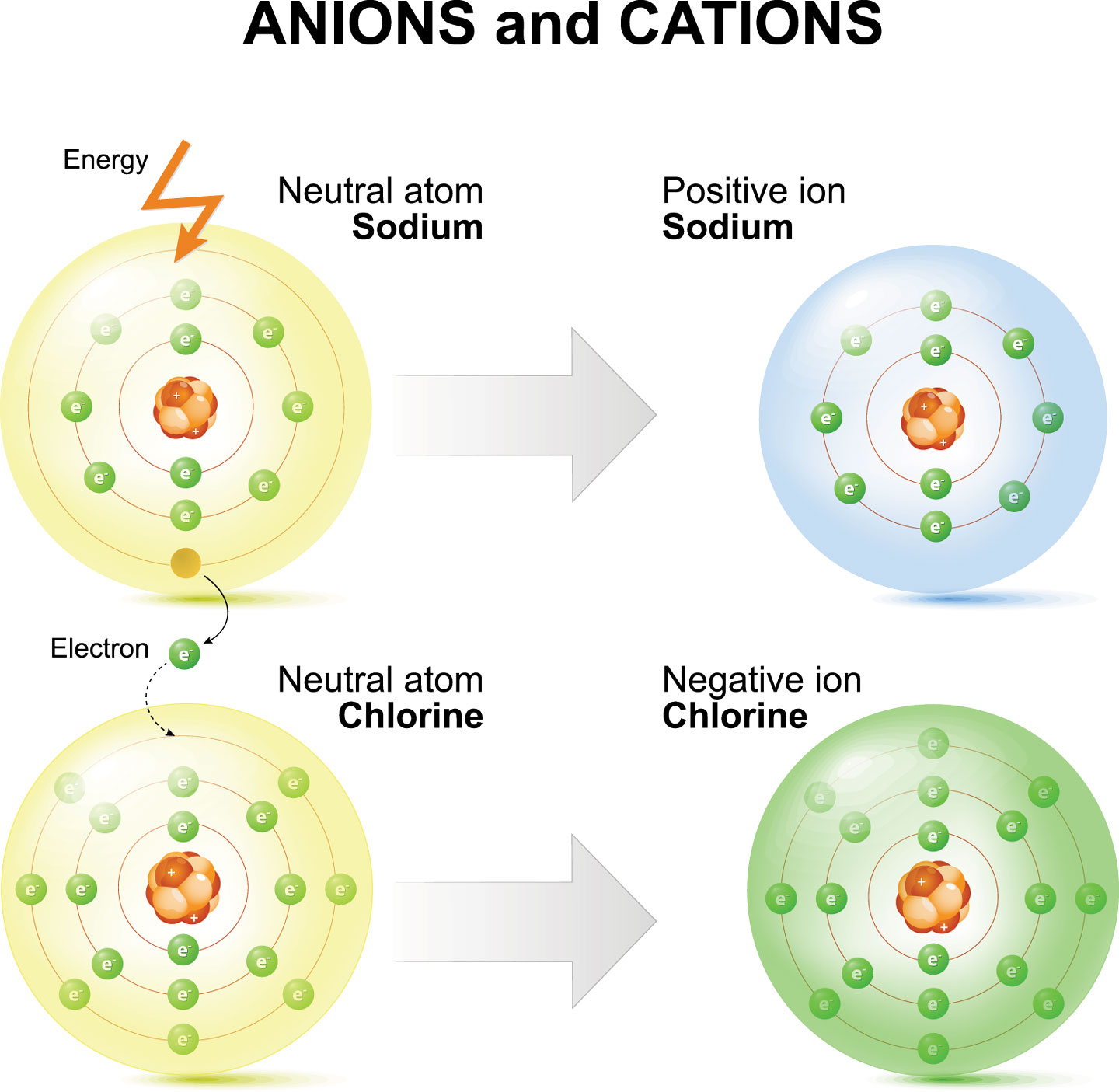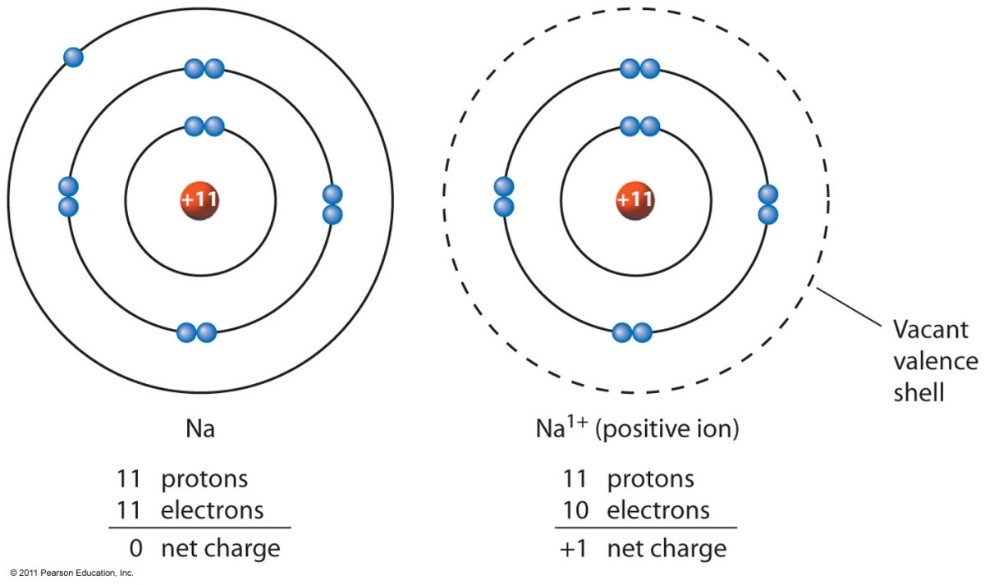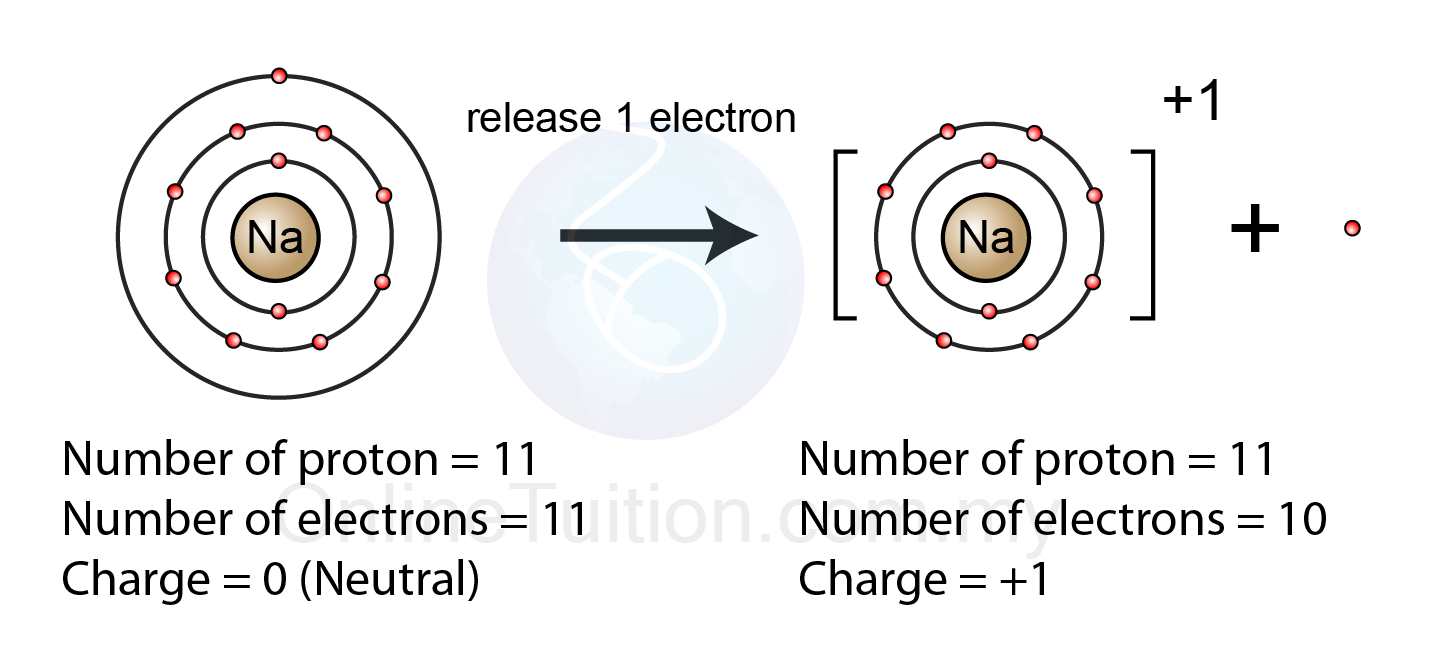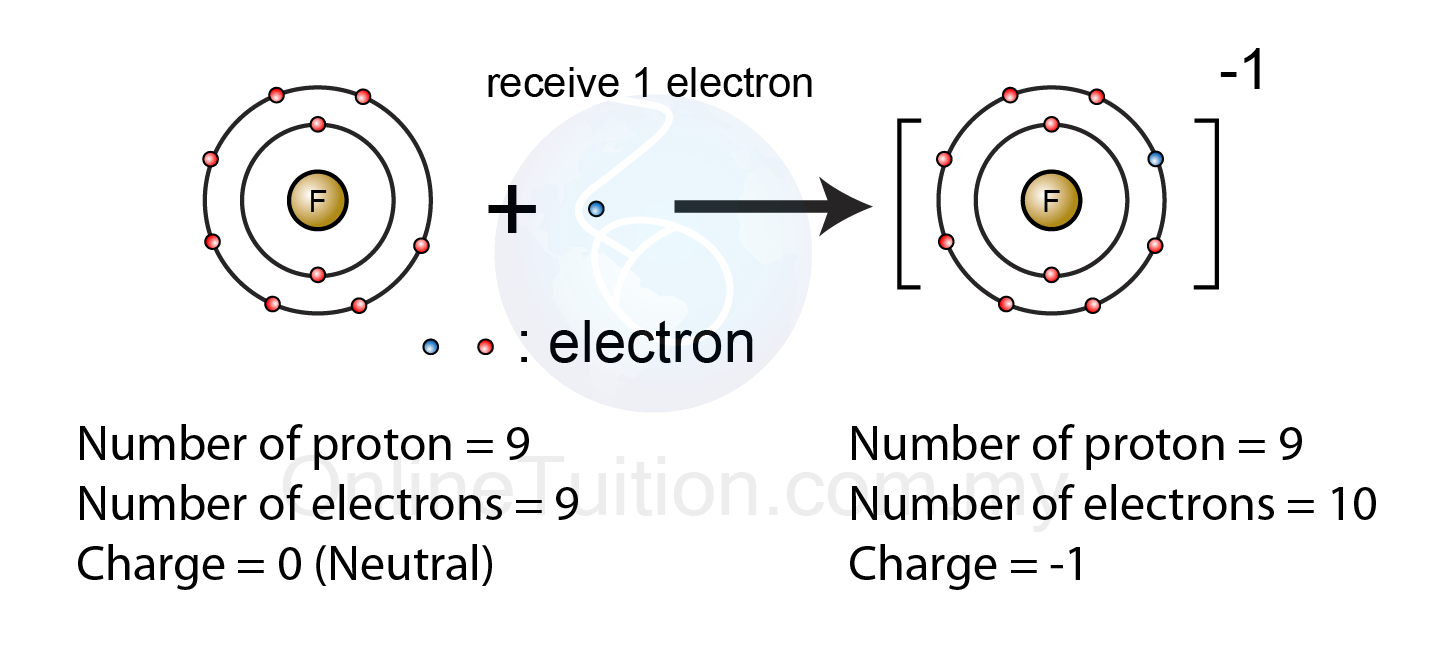How Do Positive And Negative Ions Form
How Do Positive And Negative Ions Form - When writing the charge on the ion, remember to put the number before the positive or negative symbol (2+). Ions form when atoms lose or gain electrons. For example, a negative charge causes a repulsive force on a neighbouring negative charge. Ionic formulas balance the total positive and. Charge comes in two forms, positive and negative. An ionic compound is an electrically neutral compound consisting of positive and negative ions. You are very familiar with some ionic. Ionic compounds have positive ions and negative ions.
Ions form when atoms lose or gain electrons. Ionic compounds have positive ions and negative ions. Charge comes in two forms, positive and negative. Ionic formulas balance the total positive and. You are very familiar with some ionic. For example, a negative charge causes a repulsive force on a neighbouring negative charge. When writing the charge on the ion, remember to put the number before the positive or negative symbol (2+). An ionic compound is an electrically neutral compound consisting of positive and negative ions.
Ionic compounds have positive ions and negative ions. For example, a negative charge causes a repulsive force on a neighbouring negative charge. Ionic formulas balance the total positive and. You are very familiar with some ionic. An ionic compound is an electrically neutral compound consisting of positive and negative ions. When writing the charge on the ion, remember to put the number before the positive or negative symbol (2+). Charge comes in two forms, positive and negative. Ions form when atoms lose or gain electrons.
How Many Protons Are In All Chlorine Cl Atoms
Ions form when atoms lose or gain electrons. When writing the charge on the ion, remember to put the number before the positive or negative symbol (2+). Ionic compounds have positive ions and negative ions. You are very familiar with some ionic. For example, a negative charge causes a repulsive force on a neighbouring negative charge.
How Do Negative Ions Form? Pürlife
Ionic compounds have positive ions and negative ions. Charge comes in two forms, positive and negative. Ions form when atoms lose or gain electrons. You are very familiar with some ionic. Ionic formulas balance the total positive and.
Bonding and Structure* — the science sauce
For example, a negative charge causes a repulsive force on a neighbouring negative charge. You are very familiar with some ionic. An ionic compound is an electrically neutral compound consisting of positive and negative ions. Ions form when atoms lose or gain electrons. When writing the charge on the ion, remember to put the number before the positive or negative.
Lesson Video Ions Nagwa
Charge comes in two forms, positive and negative. Ions form when atoms lose or gain electrons. When writing the charge on the ion, remember to put the number before the positive or negative symbol (2+). An ionic compound is an electrically neutral compound consisting of positive and negative ions. For example, a negative charge causes a repulsive force on a.
Explainer Ions and radicals in our world Science News for Students
Ionic formulas balance the total positive and. You are very familiar with some ionic. An ionic compound is an electrically neutral compound consisting of positive and negative ions. Charge comes in two forms, positive and negative. Ions form when atoms lose or gain electrons.
Do Metals Form Positive Or Negative Ions
You are very familiar with some ionic. Charge comes in two forms, positive and negative. Ions form when atoms lose or gain electrons. Ionic compounds have positive ions and negative ions. For example, a negative charge causes a repulsive force on a neighbouring negative charge.
Negative Ions Science Behind It Healing with Nature
When writing the charge on the ion, remember to put the number before the positive or negative symbol (2+). Charge comes in two forms, positive and negative. Ionic formulas balance the total positive and. Ionic compounds have positive ions and negative ions. An ionic compound is an electrically neutral compound consisting of positive and negative ions.
Do Metals Form Positive Or Negative Ions
An ionic compound is an electrically neutral compound consisting of positive and negative ions. Ions form when atoms lose or gain electrons. Ionic formulas balance the total positive and. When writing the charge on the ion, remember to put the number before the positive or negative symbol (2+). For example, a negative charge causes a repulsive force on a neighbouring.
How Many Protons In Na+
You are very familiar with some ionic. Charge comes in two forms, positive and negative. When writing the charge on the ion, remember to put the number before the positive or negative symbol (2+). An ionic compound is an electrically neutral compound consisting of positive and negative ions. For example, a negative charge causes a repulsive force on a neighbouring.
How Do Positive And Negative Ions Form
You are very familiar with some ionic. Ionic formulas balance the total positive and. When writing the charge on the ion, remember to put the number before the positive or negative symbol (2+). Ions form when atoms lose or gain electrons. An ionic compound is an electrically neutral compound consisting of positive and negative ions.
Ionic Formulas Balance The Total Positive And.
Ionic compounds have positive ions and negative ions. You are very familiar with some ionic. Charge comes in two forms, positive and negative. An ionic compound is an electrically neutral compound consisting of positive and negative ions.
When Writing The Charge On The Ion, Remember To Put The Number Before The Positive Or Negative Symbol (2+).
For example, a negative charge causes a repulsive force on a neighbouring negative charge. Ions form when atoms lose or gain electrons.
